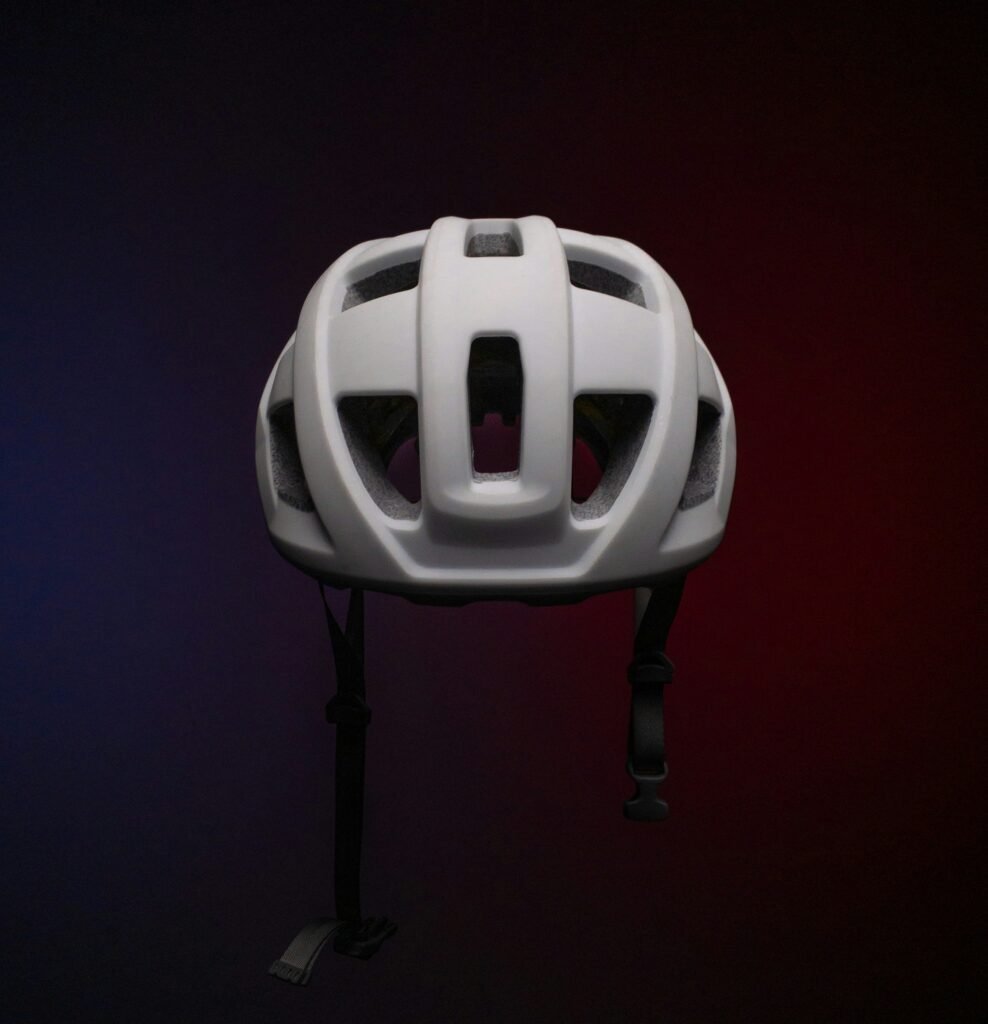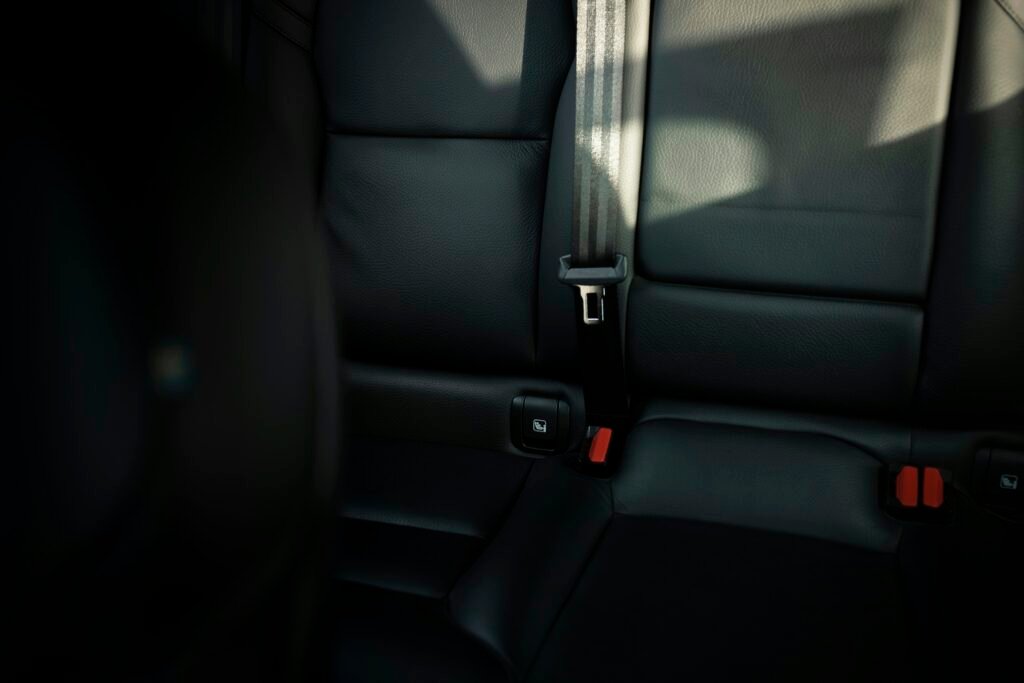In today’s bustling world, personal safety remains a top priority for everyone. Whether you find yourself strolling through a crowded city street or waiting for public transportation, knowing how to ensure your own well-being is crucial. This article sheds light on the importance of personal safety in public spaces, providing essential tips and strategies to help you navigate any situation with confidence. From being aware of your surroundings to learning basic self-defense techniques, arming yourself with this knowledge will undoubtedly empower you to feel secure and at ease wherever you go.

This image is property of images.unsplash.com.
Check out our Product Reviews
Be Aware of Your Surroundings
Pay attention to your surroundings
When it comes to personal safety in public spaces, being aware of your surroundings is of utmost importance. This means actively paying attention to what is happening around you. Whether you are walking on the streets, waiting for public transportation, or simply enjoying a day in the park, it is crucial to stay alert. By staying aware of the people, vehicles, and general environment around you, you can quickly identify any potential risks or dangers that may arise. It also allows you to be more present in the moment and enjoy your surroundings with a sense of security.
Avoid distractions
In today’s modern world, distractions are everywhere. From smartphones to portable music players, it is easy to get absorbed in technology and lose sight of your surroundings. However, it is essential to resist the temptation of becoming engrossed in your devices while in public areas. By keeping your attention focused on your surroundings, you are better equipped to react if a potentially unsafe situation arises. So, the next time you are scrolling through your phone or listening to music, take a moment to pause and ensure that you are in a safe and secure environment before indulging in such distractions.
Trust your instincts
Intuition can be a powerful tool when it comes to personal safety. If something feels off or makes you uncomfortable, it’s crucial to trust your gut instincts. Sometimes, our subconscious mind picks up on subtle cues or signals that our conscious mind may not immediately recognize. Therefore, if a person, place, or situation raises concern, it is best to remove yourself from that environment and seek safety. Trusting your instincts can help prevent potential dangers and ensure your well-being in public spaces.
Stick to Well-Lit and Populated Areas
Stay in well-lit areas
Dark and poorly lit areas can be breeding grounds for potential threats and dangers. Criminals tend to target these areas as they provide cover and make it easier for them to carry out their nefarious activities undetected. By staying in well-lit areas, you increase your visibility, making it less likely to be targeted. Whether you are walking at night or parking your car, try to choose well-lit locations that are well-maintained and have sufficient lighting. This simple precautionary measure can significantly enhance your personal safety in public spaces.
Avoid quiet and deserted places
Isolated and deserted areas can pose a significant risk to personal safety. These locations provide potential perpetrators with ample opportunities to commit crimes without being interrupted or noticed. Therefore, it is advisable to avoid such places, especially when you are alone or during odd hours. For instance, if you need to use an ATM, choose one that is located in a well-populated area rather than a secluded spot. By sticking to areas where there are people around, you decrease the likelihood of becoming a target.
Take well-traveled routes
When navigating through public spaces, it is wise to stick to well-traveled routes. These are the paths or roads that are frequently used by others and are typically safer than less-frequented alternatives. Opting for well-traveled routes ensures that there will be people around who can potentially offer assistance if needed. It also minimizes the possibility of encountering unfamiliar or potentially unsafe areas. So, whether you are walking, cycling, or driving, make a conscious effort to choose routes that are commonly used by others.
Check out our Product Reviews
Secure Your Personal Belongings
Keep valuable items hidden
Theft and pickpocketing are prevalent crimes in public spaces, and one way to protect yourself is by keeping your valuable items hidden. Avoid flashing expensive jewelry, electronics, or other high-value items that may attract unwanted attention. Instead, keep them concealed in your bag or pockets until necessary. By minimizing the visibility of your valuables, you reduce the likelihood of becoming a target for thieves.
Use bags that can be securely closed
Choosing the right bag can play a crucial role in securing your personal belongings. Opt for bags that have secure closures like zippers or clasps to prevent unauthorized access. Cross-body bags or backpacks that can be worn securely on your front can also be a good choice as they are more difficult for thieves to grab or access without your knowledge. Additionally, consider bags with anti-theft features such as slash-proof straps or RFID-blocking compartments for added security.
Avoid displaying expensive jewelry or electronics
As much as you may want to showcase your latest gadgets or stylish jewelry, doing so in public spaces can attract unnecessary attention and potentially put your safety at risk. Expensive items can be enticing to thieves who may be lurking nearby. To avoid becoming a target, it is advisable to keep your valuable possessions out of sight and reserve any showing off for more secure and private environments.
Use Public Transportation Safely
Plan your route in advance
When using public transportation, it is essential to plan your route in advance. Research the schedules, stops, and connections necessary to reach your destination. By familiarizing yourself with the route, you are less likely to find yourself in unfamiliar or potentially unsafe areas. It also allows you to have a better sense of how long your journey will take, minimizing the time spent waiting at a particular location.
Stand near other passengers
When waiting for public transportation, try to position yourself near other passengers. By doing so, you create an environment where there are witnesses who can take notice should anything untoward occur. Additionally, standing near others can deter potential criminals, as they are more likely to target individuals who are isolated or appear vulnerable. The presence of other passengers can provide a sense of safety and security.
Avoid using headphones
While listening to music or podcasts during your commute can be enjoyable, it is crucial to avoid using headphones that may isolate you from your surroundings. When wearing headphones, you may not hear important sounds or cues that can alert you to potential dangers. It is essential to be able to hear approaching vehicles, announcements, or conversations happening around you. By staying attentive and aware, you can respond quickly and appropriately to any unforeseen situations.

This image is property of images.unsplash.com.
Stay Alert in Parking Lots and Garages
Park in well-lit areas
Parking lots and garages can often be dimly lit, making them potential hotspots for criminal activity. To ensure your safety, choose parking spots in well-lit areas where visibility is good. It is also advisable to park near entrances or exits, as these areas tend to be more secure and monitored. Additionally, consider parking close to occupied spaces or places with significant foot traffic, as this reduces the chances of someone attempting to break into your vehicle unnoticed.
Lock your car and roll up the windows
Before leaving your vehicle, always remember to lock the doors and roll up the windows. Even if you are only going to be away for a short period, leaving your vehicle unlocked is an invitation for thieves. It takes just seconds for someone to open an unlocked door and steal your belongings. By keeping your car secure, you create an additional barrier of protection and discourage potential criminals from attempting to break in.
Keep your keys ready when walking to your vehicle
When walking to your parked car, it is a good practice to have your keys ready in your hand. This not only saves time but also allows you to enter your vehicle quickly and minimize your vulnerability. By having your keys readily available, you can swiftly unlock your car and enter, reducing the chances of someone taking advantage of your momentary distraction.
Travel in Groups
Avoid walking alone, especially at night
Walking alone, especially at night, can significantly increase your vulnerability to potential dangers. Criminals are more likely to target individuals who are by themselves, as there are fewer witnesses and less chance of resistance. Therefore, whenever possible, try to walk with others, even if it means waiting for a friend or using a ride-sharing service. By traveling in a group, you enhance your personal safety and decrease the likelihood of encountering threatening situations.
Use the buddy system
The buddy system is a simple yet effective strategy to ensure personal safety, particularly in unfamiliar areas. If you are exploring a new place, going on a hike, or attending an event, pair up with a friend or family member. With someone by your side, you can look out for each other, share responsibilities, and lend support if needed. Having a buddy significantly reduces your vulnerability and provides an added layer of security.
Stay together when exploring unfamiliar areas
Exploring new and unfamiliar areas can be exciting, but it can also expose you to potential risks. To stay safe, it is advisable to stick together as a group when exploring unfamiliar places. This ensures that everyone is accounted for and can help deter any ill-intentioned individuals who may be observing or targeting lone individuals. Remember, there is safety in numbers, so prioritize staying together when venturing into unfamiliar territory.

This image is property of images.unsplash.com.
Learn Self-Defense Techniques
Take self-defense classes
Learning self-defense techniques can empower you and give you the confidence to protect yourself in potentially dangerous situations. Enroll in self-defense classes or workshops where you can learn practical skills such as basic striking, effective blocking, and techniques to escape from grabs or holds. These classes also often focus on situational awareness, teaching you to identify threats and take appropriate action. By investing time and effort in learning self-defense, you increase your ability to respond effectively if faced with a threatening situation.
Practice situational awareness
Situational awareness is the ability to assess your environment and detect any potential threats or dangers. It involves actively observing your surroundings, identifying exit points, and being mindful of any unusual or suspicious activities. By practicing situational awareness, you can stay one step ahead and make informed decisions when it comes to your personal safety. Remember, being aware of your surroundings is the first line of defense.
Carry personal safety devices if legally allowed
Depending on the laws and regulations in your area, carrying personal safety devices such as pepper spray, personal alarms, or tactical pens can provide an additional layer of protection. These devices are designed to incapacitate or deter potential attackers and can be valuable tools in self-defense. However, it is important to check local laws before purchasing or carrying any personal safety devices and to familiarize yourself with their proper usage to avoid accidental harm.
Trust Your Intuition
Listen to your gut feelings
Your intuition, or “gut feeling,” can often provide valuable insights into potentially unsafe situations or people. If something doesn’t feel right, listen to your instincts. Our subconscious mind picks up on subtle cues or indicators that our conscious mind may not immediately recognize. If a person or situation raises red flags or makes you uncomfortable, it is better to remove yourself from that environment and seek safety. Trusting your intuition can help prevent potential dangers and ensure your well-being.
Avoid situations or people that make you uncomfortable
It is natural to encounter situations or people that make you feel uncomfortable or uneasy. When faced with such circumstances, it is best to listen to your instincts and remove yourself from those situations or individuals. Whether it is someone exhibiting suspicious behavior or finding yourself in an environment that doesn’t align with your values or well-being, prioritize your safety and well-being above all else. Trust yourself and make choices that promote your personal security and peace of mind.
Don’t hesitate to seek help or call emergency services
In case of an emergency or if you feel that your personal safety is at immediate risk, do not hesitate to seek help or call emergency services. The authorities are trained to handle such situations and can provide you with the assistance you need. Always keep emergency contact numbers stored in your phone or memorized, and be ready to reach out for help should the need arise. Remember, it is better to be safe than sorry, and seeking help is a sign of strength and wisdom.
Be Mindful of Your Digital Footprint
Be cautious when sharing personal information online
In today’s digital age, it is crucial to be cautious when sharing personal information online. This includes sensitive data such as your home address, phone number, or financial details. Avoid oversharing personal information on social media platforms or other websites that can be accessed by the public. By being mindful of what you share online, you reduce the chances of falling victim to identity theft or other cybercrimes.
Set strong privacy settings on social media
Protecting your personal information on social media is essential for personal safety. Set your privacy settings to restrict the visibility of your posts, photos, and personal details to only your approved connections. Regularly review and update these settings to ensure that you are in control of what information is accessible to others. By limiting access to your personal information, you decrease the risk of potential threats or individuals with malicious intent targeting you.
Avoid broadcasting your location in public posts
It can be tempting to share your current location or check-in at various places on social media platforms. However, broadcasting your location publicly can make you an easy target for criminals who may be monitoring your online activities. Instead, consider sharing your experiences and photos after leaving a particular location, or limit such updates to a select group of trusted individuals. By being mindful of what you share about your whereabouts, you maintain a level of privacy and minimize potential risks.
Establish an Emergency Plan
Share your plans with a trusted friend or family member
Establishing an emergency plan is essential for personal safety. Share your plans and itineraries with a trusted friend or family member before embarking on any trips or outings. Provide them with details such as your destination, expected arrival times, and contact information. This ensures that someone knows your whereabouts and can raise an alarm if you fail to check in or if an emergency arises. Regular communication with your loved ones while you are away adds an extra layer of security and peace of mind.
Know the local emergency services contact numbers
Being aware of the local emergency services contact numbers is crucial, especially when traveling to unfamiliar areas. Before your trip, research and save the appropriate emergency contact numbers for the destination you are visiting. This includes the local police department, fire department, and ambulance services. In case of an emergency or if you witness a crime, having these numbers readily available allows you to quickly report the incident and seek the necessary help.
Discuss emergency procedures and meeting points
Discussing emergency procedures and establishing meeting points with your travel companions or loved ones is vital for personal safety. Determine a designated meeting point in case you get separated or encounter an emergency situation. Establish clear communication protocols if cell phone service is unavailable or if there are language barriers. By having a plan in place, everyone involved can act efficiently and effectively in an emergency, maximizing personal safety for all parties involved.
Ensuring personal safety in public spaces requires a combination of awareness, preparation, and proactive measures. By paying attention to your surroundings, choosing well-lit and populated areas, securing your personal belongings, and using public transportation safely, you can significantly reduce the risks you may encounter. Additionally, by traveling in groups, learning self-defense techniques, trusting your intuition, and being mindful of your digital footprint, you enhance your personal safety further. Lastly, establishing an emergency plan and being prepared for unforeseen circumstances is crucial for your well-being. Remember, your safety is a priority, and by following these guidelines, you can navigate public spaces with confidence and peace of mind.
Check out our Product Reviews